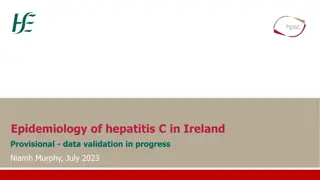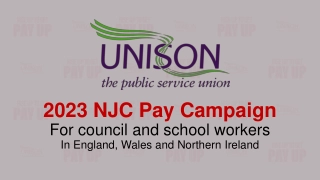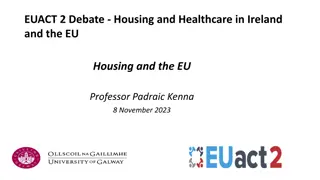Cromwell in Ireland
English authority in Ireland faced challenges after the rebellion of 1641. Cromwell was appointed to crush unrest, landing near Dublin with 12,000 men. Concerns of Parliament included the threat of Catholicism and the use of Ireland against the monarchy. Criticisms arose over Cromwell's brutal campaign, notably the massacre at Drogheda where no quarter was given to defenders.
Download Presentation
Please find below an Image/Link to download the presentation.
The content on the website is provided AS IS for your information and personal use only. It may not be sold, licensed, or shared on other websites without obtaining consent from the author. Download presentation by click this link. If you encounter any issues during the download, it is possible that the publisher has removed the file from their server.
Presentation Transcript
www.hoddereducation.co.uk/modernhistoryreview Cromwell in Ireland The Third Civil War, 1649 52 Hodder and Stoughton Limited 2024
Background English authority in Ireland had been challenged since rebellion broke out in 1641. Irish Catholics had attacked Protestant settlers in Ulster. Following the execution of Charles I, the Earl of Ormonde had persuaded Protestant royalists to join Catholics against the English Parliament. Cromwell was appointed Lord Lieutenant to crush the unrest. Hodder and Stoughton Limited 2024
Events 164950 August 1649, Cromwell lands near Dublin with 12,000 men. Fear that Ormonde would join with leader of Irish peasantry, O Neill. This concern leads Cromwell to advance on Drogheda, as it dominated the main route north south. Resistance before town is taken and north secured. Cromwell moves south, and takes Wexford after resistance. May 1650, Cromwell recalled to England, having smashed royalist cause in Ireland Ireton left in command of English forces continues plantation policy. Hodder and Stoughton Limited 2024
What were the concerns of Parliament? Royalism might gain a foothold in Ireland. Charles I had attempted to recruit soldiers from Ireland. Royalists and Catholics had joined forces. The threat of Catholicism after 1641. The use of Ireland as a springboard for an attack to restore the monarchy. Royalists had recognised Prince Charles as Charles II. Hodder and Stoughton Limited 2024
What criticisms were made of Cromwells campaign in Ireland? He ordered no quarter to be given to the defenders of Drogheda, even when some had surrendered (Document A). Cromwell appeared to glorify in the brutality used when reporting to Parliament. He claimed the massacres were a judgement from God, and so were justifiable. Hodder and Stoughton Limited 2024
Document A: The massacre at Drogheda Sir, having brought the army of the Parliament of England before this place, to reduce it to obedience, to the end that the effusion of blood may be prevented, I thought fit to summon you to deliver the same into my hands to their use. If this be refused, you will have no cause to blame me. I expect your answer and remain your servant. Cromwell, letter to the commander of the Drogheda garrison, 10 September 1649 Hodder and Stoughton Limited 2024
Controversy over Drogheda Royalists under Aston had barricaded themselves in Millmount Fort. The parliamentarian colonel, Daniel Axtell, offered to spare the lives of the governor and the 200 men if they surrendered they did. Men who surrendered were then taken to nearby windmill and killed within an hour of their surrender. See Document C for Cromwell s justification. Hodder and Stoughton Limited 2024
Document B: The massacre at Wexford We were intending better to this place [Wexford] than so great a ruin, hoping the town might be of more use to you and your army, yet God would not have it so; but, by an unexpected providence, in His righteous justice, brought a just judgement upon them; causing them to become a prey to the soldier, who by their piracies had made a prey of so many families, and made with their bloods to answer the cruelties which they had exercise upon the lives of various poor Protestants. Thus it hath pleased God to give into your hands this other mercy, for which, as for all, we pray God may have the glory. Cromwell, letter to the speaker of the House of Commons, 11 October 1649 Hodder and Stoughton Limited 2024
How have Cromwells actions been justified? (1) Cromwell wanted to avoid a long campaign. The laws of warfare state: if a garrison refuses to surrender and fights on, then they lose the right to mercy. Both Drogheda and Wexford were defended by both Catholics and royalists; Cromwell needed to crush their resistance. Cromwell was angered by the deaths of parliamentarian colleagues and of Protestants in 1641. Hodder and Stoughton Limited 2024
How have Cromwells actions been justified? (2) Cromwell did not order the killings in Wexford. Garrisons contained both English royalists and Catholics and were part of the alliance Charles had created to raise a force against England. The force of royalists and Catholics was seen as responsible, in part, for the Second Civil War and should be punished. Hodder and Stoughton Limited 2024
Document C I am persuaded that this is a righteous judgement of God on these barbarous wretches, who have imbrued their hands with so much innocent blood; and that it will tend to prevent the effusion of blood for the future, which are satisfactory grounds for such action which cannot otherwise but work remorse and regret. Cromwell, letter to the speaker of House of Commons, September 1649 [The governor, Aston, had refused to surrender, as he hoped the royalist commander Ormonde, who was near with 4,000 troops, would relieve the town.] Hodder and Stoughton Limited 2024
How did Cromwell explain his actions? Here, Cromwell argues that they were carrying out God s work: A Divine Presence hath gone along with us in the late great transactions in Ireland. To us who are employed as instruments in this work the contentment that appears is that we are doing our master s [God s] work, that we have His presence and blessing with us. Cromwell, letter to John Sadler, one of the Masters of the Court of chancery, 31 December 1649 Hodder and Stoughton Limited 2024
What were the results of Cromwells actions? English authority was established. He was able to return to England and deal with the threat from Scotland. Charles, Prince of Wales (II) was forced to flee to France. Plantation policy is further developed Catholics moved west to Connaught. The role his policies have played in divisions in Ireland has been much debated. Hodder and Stoughton Limited 2024





























